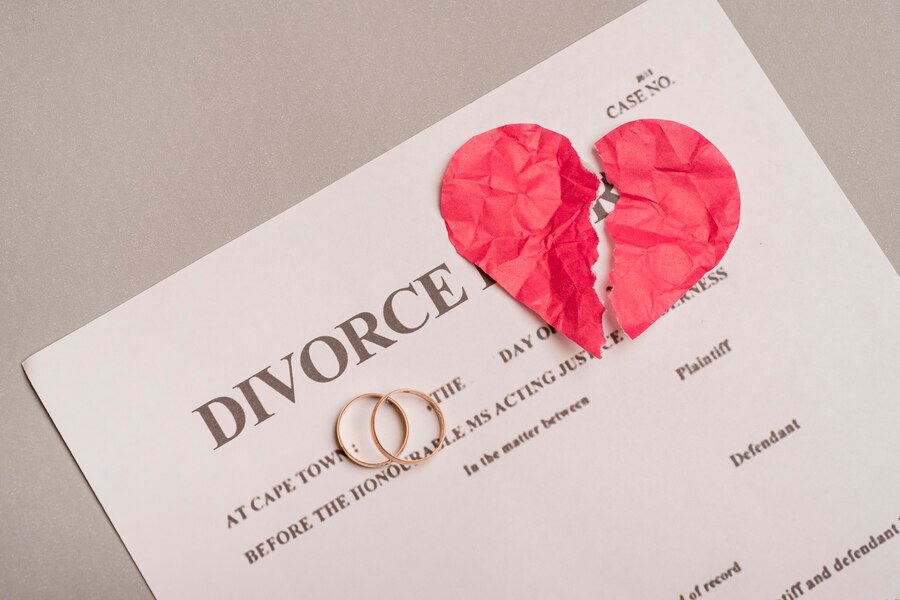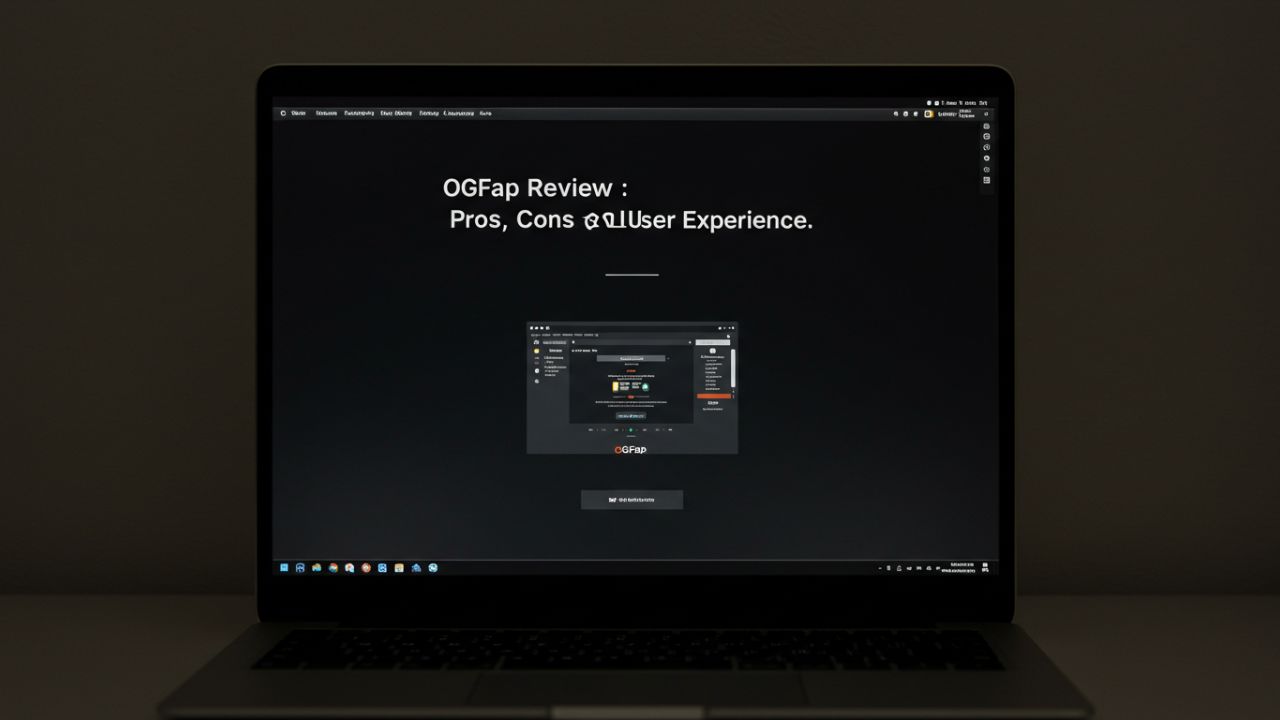Blog
Understanding Your Rights in Modern Divorce Proceedings

Navigating the minefield of a contemporary divorce is a legal and emotional minefield. The world of family law is now advanced to a considerable degree, with an emphasis on mediation and alternative dispute resolution, but your right to understand your basic rights is still at the centre. These include financial rights, child arrangement orders, and equitable division of matrimonial property. Whatever you are handling, consent orders, financial remedy cases, or parental responsibility, having the right knowledge in your possession puts the authority in your hands to make decisions that look after your own future welfare and that of any children. If you are based in the North West, appointing a leading specialist practice in family law Manchester is a crucial step towards securing a reasonable and sustainable outcome.
The Right to Financial Provision and a Reasonable Settlement
Arguably, one of the most significant divorce rights is to have leave of court to make an application for financial provision in pursuing a reasonable settlement, but not necessarily an equitable one. The court considers factors under the Matrimonial Causes Act 1973, such as both parties’ income and earning capacity, the obligations and the needs of both parties, the standard of living after the marriage, and the duration of the marriage. The intention is a clean break where possible, meeting both parties’ needs, especially any children. This may include orders for capital (e.g., variation of property) and maintenance orders for income in the long term (e.g., spousal maintenance).
Rights over the Family Home and Property
The marital home is usually the most valuable asset. Your rights over it vary according to a range of different factors, including legal title, contribution, and children’s needs. The court has extensive jurisdiction to transfer property between spouses or order a sale with proceeds divided fittingly. Even where a property is registered in one party’s sole name, the other may still have a beneficial interest to rely on if they can show financial contribution or common intention to share the title. The primary concern is usually ensuring security, in this case, for the children.
Parental Responsibility and Child Arrangement Orders
Parental Responsibility (PR) is the rights, obligations and powers a parent has over a child. Mothers are automatically PRs; fathers are usually PRs if married to the mother or on the birth certificate. Where the parents do split up, determining where a child resides is taken over by a Child Arrangements Order. This legally establishes with them the child they live with and communicate with. The court’s only concern at all times is the welfare of the child, trying to allow them to have access to both parents as long as it is safe and in their best interest.
The Right to Spousal Maintenance
Spousal maintenance is financial support by one ex-spouse to the other on divorce. It is not automatic and is only awarded on the grounds of the need to correct any significant disparity of earning capacity. The court ascertains whether a party can sustain their “reasonable needs” from their own funds. The amount and duration are decided based on the length of marriage, whether the recipient can achieve self-sufficiency, and the payer’s financial resources. Maintenance can be payable for a term (attempting to ensure retraining, say) or for joint lives, but the former is no longer so common.
Rights Over Pensions and Future Income
Pensions will usually account for the matrimonial assets of greatest worth. You are entitled to claim against your former spouse’s pension fund(s). There are three options in general: pension sharing (a percentage is passed to you), pension attachment (you are paid an income upon retirement of the member), or offsetting (you are provided with other assets of the same value instead of a pension share). The court will be vigilant to future needs for money, that is, in the case of a party who will possibly have resigned from work during the marriage, to provide for long-term financial security in the settlement.
The Right to Full and Frank Financial Disclosure
It is an elementary right and obligation in money cases that there is a full and frank obligation of disclosure of finances. Each party will also be requested to be absolutely honest about their finances, including income, assets, property, investments, and debts. This will usually be achieved through completing a Form E statement of financial information. Concealment of assets is a contempt of court and may lead to orders for settlements to be set aside. Full disclosure must be done in a bid to have a reasonable settlement and for the court to utilise its jurisdiction accordingly, taking into account all assets in the financial remedy process.
Conclusion
Understanding your rights in today’s divorce hearings is the springboard on which to navigate this challenging process with conviction and confidence. The law establishes a process which aims to be equitable, to protect the children’s interests, and to organise financial provision for both of you. From pensions and property sharing to arrangements for children and your own safety, knowledge of the facts helps constructive decision-making. While the emotional price of divorce is overblown, having this entitlement knowledge through the law empowers the individual to demand results which secure their future interests and provide them with a new beginning. Expert legal advice is essential to achieve this.
Visit woolrec for more informative blogs.
Blog
Revitalize Your Living Space with Impressions Painting

Your home is more than just a structure of wood, brick, and drywall. It is the backdrop of your life, the quiet observer of your daily routines, and the sanctuary where you retreat after a long day. When you walk through your front door, the environment should immediately signal that you are safe, comfortable, and exactly where you belong. However, scuffed baseboards, faded siding, or outdated color schemes can silently disrupt that sense of peace.
Many homeowners underestimate the profound impact a fresh coat of paint has on a property. It is not merely about maintenance; it is about transformation. This is where Impressions Painting steps in. We believe that painting is not just a trade—it is an art form that requires precision, vision, and a deep respect for your personal space. Choosing the right team to handle your project means choosing a partner who cares about the final result just as much as you do.
The Art of First Impressions
The name “Impressions Painting” isn’t just a label; it is our ethos. The exterior of your home is the first thing guests see when they arrive and the last thing they notice when they leave. It sets the tone for the entire property. Over time, weather elements like harsh sunlight, rain, and wind can degrade your home’s exterior, leaving it looking tired and neglected.
Our team specializes in restoring that initial “wow” factor. We understand that exterior painting is about durability as much as aesthetics. We utilize high-quality, weather-resistant materials designed to withstand the elements, ensuring that your home looks pristine for years to come. Whether you want to modernize your façade with a trendy slate grey or restore a classic colonial white, Impressions Painting provides the expertise to execute your vision flawlessly. A crisp, clean exterior doesn’t just please the eye; it significantly boosts your curb appeal and property value.
Interior Mood Setting: More Than Just Color
When you move inside, the conversation shifts from durability to atmosphere. Every room in your house serves a specific purpose, and the color on the walls should reflect that. A bedroom might require calming blues or soft neutrals to promote rest, while a kitchen or dining area might benefit from energetic yellows or warm terracottas to stimulate conversation and appetite.
At Impressions Painting, we don’t just apply paint; we help you curate a mood. Our professionals can guide you through color selection, helping you navigate the subtle differences between “cool gray” and “warm greige” that can drastically alter the feel of a room. We take the guesswork out of the process.
Furthermore, the finish matters. A matte finish might look sophisticated in a living room, but could be a nightmare to clean in a high-traffic hallway. Our team advises on the practical aspects of sheen and texture, ensuring that your beautiful walls are also functional and easy to maintain.
The “Invisible” Work: Preparation and Precision
Have you ever looked closely at a DIY paint job? You might notice roller marks, uneven edges where the wall meets the ceiling, or splatters on the trim. These small imperfections add up, creating a finish that feels subconscious “messy.”
The hallmark of Impressions Painting is the work you don’t see. The true mark of a professional is in the preparation. Before a single drop of paint touches your walls, our team engages in rigorous prep work. We sand down rough patches, fill nail holes, caulk gaps in the trim, and ensure the surface is perfectly primed. This meticulous attention to detail ensures that the final coat adheres smoothly and looks uniform.
We pride ourselves on razor-sharp lines and even coverage. When you hire Impressions Painting, you are investing in a flawless finish that looks factory-fresh. We treat your furniture and floors with the utmost respect, covering and protecting your belongings so that the only evidence we were there is your stunning new walls.
Why “Good Enough” isn’t Good Enough
In an era of endless home improvement tutorials, it is tempting to tackle painting projects yourself. However, painting is deceptively difficult. It requires specific tools, steady hands, and a significant amount of time. What starts as a fun weekend project often turns into a month-long ordeal of living with draped furniture and the smell of fumes.
Impressions Painting offers you the luxury of time. We handle the logistics, the labor, and the cleanup. Our teams work efficiently to complete projects on schedule, minimizing disruption to your daily life. We bring the right equipment—from high ladders to industrial sprayers—to handle jobs that would be dangerous or impossible for the average homeowner.
By choosing professional services, you also avoid the common pitfalls of amateur painting, such as peeling, bubbling, or streaking. We get it right the first time, saving you the cost and frustration of having to fix mistakes later.
Protecting Your Investment
Your home is likely your most significant financial investment. Maintaining its condition is crucial for retaining its value. Paint acts as a protective barrier against moisture, mold, and rot. By keeping your interior and exterior surfaces well-sealed with high-quality paint, you are actively preventing structural damage.
Impressions Painting uses premium products that offer superior coverage and longevity. We don’t cut corners with cheap materials that fade or chip within a year. Our commitment to quality means that your investment pays dividends in the form of a healthy, robust, and beautiful home.
Experience the Transformation
Impressions Painting transforms your environment with professional precision, turning worn or outdated walls into fresh, vibrant spaces. Expert painting enhances your daily life by boosting comfort, mood, and productivity while protecting and beautifying your home.
Impressions Painting is dedicated to delivering that experience to every client. We combine technical mastery with customer-focused service to ensure that your project is smooth, stress-free, and successful. Don’t settle for walls that fade into the background. Let us help you create a home that makes a lasting impression.
Blog
The Art of Home Renewal: Why Triangle Pro Painting Is Different

Your home is a reflection of your life. It evolves, changes, and grows just as you do. But there comes a moment when you look at your walls and realize they no longer tell the story you want them to tell. Maybe the beige that felt safe five years ago now feels uninspired. Perhaps the exterior siding has lost its luster after seasons of harsh weather. This isn’t just about maintenance; it’s about how you feel when you walk through the door.
When that moment arrives, the solution isn’t just buying a few cans of color. It is about engaging a partner who understands that they aren’t just covering walls; they are revitalizing your sanctuary. This is where Triangle Pro Painting steps in, bridging the gap between a simple renovation and a total transformation.
Beyond the Bucket and Brush
There is a misconception that painting is a simple task. It looks easy enough on television renovation shows: a few energetic montages, a roller, and suddenly, a room is brand new. However, the reality of a truly high-quality finish lies in the details that most people never see.
Triangle Pro Painting operates on the philosophy that the finish is only as good as the foundation. While many contractors might rush to get color on the wall, a premier painting company understands that patience is the better part of craftsmanship.
It starts with the preparation. Before a single drop of paint is mixed, the canvas must be perfect. This means meticulous sanding, repairing minor drywall imperfections, and ensuring that trim is smooth and seamless. It is this dedication to the “invisible work” that distinguishes a standard job from a professional one. When you hire Triangle Pro Painting, you are investing in longevity. You are ensuring that the beauty you see on day one remains just as vibrant on day one thousand.
The Relief of Professionalism
We have all been there—tempted by the idea of a DIY weekend project. You buy the supplies, tape off the baseboards, and convince yourself it will be fun. Six hours later, your back aches, the lines aren’t straight, and you realize you have only finished one coat on one wall.
Hiring a professional painting company is an investment in your own peace of mind. It reclaims your time. Instead of spending your evenings moving furniture and your weekends covered in speckles of primer, you simply hand over the vision.
Triangle Pro Painting takes the stress out of the equation. Their team arrives with a plan and executes it with military precision. They respect your space as if it were their own. Furniture is protected, floors are covered, and the only evidence they were ever there is the flawless new look of your rooms. There is a profound relief in knowing that expert hands are managing the project, allowing you to focus on enjoying the result rather than enduring the process.
Exterior Excellence: Your Home’s First Impression
While interior paint sets the mood for your life inside, your home’s exterior is its handshake with the world. It is the first thing guests see and the last thing they look at when you leave. Curb appeal is powerful, but maintaining it is difficult.
Exterior painting requires a different set of skills and knowledge. It isn’t just about aesthetics; it is about protection. Your home stands against the elements—sun, rain, wind, and temperature fluctuations. The paint acts as a shield. If that shield is compromised, moisture can seep in, leading to rot and structural issues down the line.
Triangle Pro Painting approaches exterior projects with a focus on durability. They utilize high-quality, weather-resistant materials designed to withstand the specific climate challenges of the area. They understand the science of adhesion and how different surfaces—wood, stucco, brick—react to different products. By choosing a knowledgeable painting company, you aren’t just changing the color of your house; you are extending its lifespan and protecting your investment.
The Consultation Advantage
One of the most daunting aspects of repainting is the sheer volume of choice. There are thousands of shades of white alone. How do you know which one will look good with your lighting? Which undertone matches your flooring?
This is another area where Triangle Pro Painting shines. They don’t expect you to have an interior design degree. They act as collaborators. Their experience allows them to look at a space and understand how light travels through it. They can recommend color palettes that enhance the architectural features of your home or business.
This consultation process turns a transaction into a relationship. They listen to your goals—whether you want a room to feel cozy and intimate or bright and expansive—and they translate those desires into a tangible color plan. It removes the guesswork and the fear of “getting it wrong.”
A Partner for Commercial Spaces
The impact of a fresh coat of paint isn’t limited to residential homes. For business owners, the appearance of a commercial space is a direct reflection of the brand. A peeling exterior or scuffed interior walls sends a subconscious message to clients and customers about attention to detail.
Triangle Pro Painting extends its expertise to the commercial sector, understanding the unique constraints businesses face. They know that downtime means lost revenue. Therefore, they work with efficiency and flexibility to minimize disruption to operations. Whether it is refreshing an office to boost employee morale or revitalizing a retail storefront to attract foot traffic, they apply the same rigorous standards of quality.
The Triangle Pro Promise
In an industry where reliability can sometimes be scarce, finding a painting company that stands behind its work is invaluable. Triangle Pro Painting has built a reputation not just on the quality of their brushstrokes, but on the integrity of their business practices.
They believe in transparency—clear quotes with no hidden fees, realistic timelines, and open communication throughout the project. When they say they will be there, they are there. When they say the job will be done by Friday, it is done by Friday.
This reliability builds trust. It is why so many of their clients are repeat customers. Once you experience the level of service and the caliber of results provided by Triangle Pro Painting, it is difficult to settle for anything less.
Revitalize Your Space Today
Triangle Pro Painting enhances your home or workspace with professional, hassle-free painting services. By trusting experts to handle the details, you transform your environment, boosting comfort, mood, and productivity without the stress or mess of a DIY project.
Don’t settle for walls that fade into the background. Don’t let your home’s exterior fall victim to the elements. Choose a partner who treats painting as the craft it truly is.
Triangle Pro Painting is ready to help you reimagine your space. Whether you need a single room refreshed or a comprehensive exterior makeover, their team has the skills, the tools, and the passion to bring your vision to life. Experience the difference that true professionalism makes. Reach out to Triangle Pro Painting today and take the first step toward a home that feels brand new again.
Blog
Why Surge Exteriors Is the Upgrade Your Home Has Been Waiting For

Your home is likely your biggest investment. It protects your family, stores your memories, and serves as your sanctuary after a long day. But like any investment, it requires maintenance and occasional upgrades to retain its value and integrity.
When the time comes to refresh your siding, repair a storm-damaged roof, or upgrade your gutters, you need a partner who values your property as much as you do. This is where Surge Exteriors enters the picture. More than just a contractor, Surge Exteriors has established itself as a premier provider of high-quality exterior renovation services, dedicated to transforming houses into durable, beautiful homes.
Choosing the right company for exterior work can be daunting. The market is flooded with options, but few offer the blend of craftsmanship, transparency, and customer-centric service that defines the Surge Exteriors experience.
The Importance of High-Quality Exterior Work
Many homeowners underestimate the critical role their home’s exterior plays. It is not merely about curb appeal—though that is certainly important—it is about structural integrity and energy efficiency.
Your roof, siding, and gutters form the first line of defense against the elements. A compromised roof can lead to water damage, mold growth, and structural rot. Old, inefficient siding can cause your energy bills to skyrocket as your heating and cooling systems work overtime to compensate for poor insulation.
Surge Exteriors understands the science behind these systems. They don’t just patch problems; they provide comprehensive solutions designed to last for decades. By using top-tier materials and adhering to strict installation standards, they ensure that your home is fortified against wind, rain, snow, and sun.
What Sets Surge Exteriors Apart?
In an industry where reliability can sometimes be scarce, Surge Exteriors stands out by adhering to a core set of values that prioritizes the customer above all else. Here is why homeowners are increasingly turning to them for their renovation needs.
Unmatched Craftsmanship
At the heart of Surge Exteriors is a commitment to excellence. Their teams are composed of skilled professionals who are experts in their respective fields, whether that is roofing, siding installation, or gutter systems. They stay updated on the latest industry techniques and safety standards to ensure every job is done right the first time.
There are no shortcuts taken. From the initial tear-off to the final inspection, every step is executed with precision. This attention to detail results in a finish that is not only visually stunning but also structurally sound.
Premium Materials
Even the best craftsmanship can be undermined by poor materials. Surge Exteriors partners with leading manufacturers to source high-quality products that offer superior durability and aesthetics. Whether you are looking for impact-resistant shingles, energy-efficient vinyl siding, or seamless gutters, they offer a wide range of options to suit your style and budget.
These materials come with robust warranties, giving you peace of mind knowing that your investment is protected. When you choose Surge Exteriors, you are choosing products that are built to withstand the test of time.
Transparent Communication
One of the biggest complaints homeowners have about contractors is a lack of communication. Surge Exteriors flips the script on this narrative. They believe that a successful project is built on trust and transparency.
From your first consultation, you will experience a difference. They provide clear, detailed estimates without hidden fees. Throughout the project, dedicated project managers keep you informed of progress, timelines, and any potential adjustments. You are never left in the dark, wondering when the crew will show up or when the job will be finished.
Comprehensive Services Under One Roof
Dealing with multiple contractors for different parts of your exterior can be a logistical nightmare. Surge Exteriors simplifies the process by offering a full suite of services.
Roofing Excellence
Your roof is perhaps the most critical component of your home’s exterior. Surge Exteriors offers comprehensive roofing services, including inspections, repairs, and full replacements. They work with various materials, including asphalt shingles, metal roofing, and flat roof systems. If your home has suffered storm damage, their team is adept at navigating the insurance claim process, advocating on your behalf to ensure you get the coverage you deserve.
Siding Transformation
New siding can completely change the look of your home while improving its energy efficiency. Surge Exteriors offers a variety of siding options, from classic vinyl to durable fiber cement. Their design team can help you select colors and textures that complement your home’s architecture, instantly boosting its curb appeal and market value.
Gutter Solutions
Water management is essential for preserving your home’s foundation. Surge Exteriors installs high-performance gutter systems that effectively channel water away from your property. They also offer gutter guards to minimize maintenance and prevent clogs, ensuring your system works efficiently year-round.
The Surge Exteriors Promise
When you hire Surge Exteriors, you aren’t just getting a service; you are getting a promise. A promise that they will treat your home with respect. A promise that they will leave the job site clean and safe every day. And a promise that they won’t be satisfied until you are thrilled with the results.
This dedication to customer satisfaction is reflected in their glowing reviews and high referral rates. Homeowners appreciate the peace of mind that comes with working with a licensed, insured, and reputable company.
Investing in Your Home’s Future
Renovating your home’s exterior is a significant decision, but it pays dividends. A new roof or siding not only makes your home more enjoyable to live in but also offers a high return on investment if you ever decide to sell.
Surge Exteriors is the partner you need to maximize that investment. They bring professionalism, expertise, and a passion for quality to every project. They understand that they aren’t just working on a house; they are working on your home.
Don’t settle for mediocre results or unreliable contractors. Experience the difference that professional dedication makes. Let Surge Exteriors help you protect and beautify your property, ensuring it remains a source of pride for years to come.
Ready to Transform Your Home?
Surge Exteriors turns your home improvement plans into reality with expert roofing, siding, and exterior services. From thorough assessments to professional guidance throughout the renovation process, our team ensures your property is upgraded safely, beautifully, and with lasting value.
Stop worrying about leaks, drafts, and peeling paint. Embrace the quality, durability, and beauty that come with choosing the best in the business. Your home deserves the Surge Exteriors touch.
Reach out to them today to schedule your consultation and take the first step toward a safer, more beautiful home.
Blog
Revitalize Your Home’s Personality With D&G Exteriors

Your home is more than just wood, brick, and mortar. It is a canvas where your life unfolds, a sanctuary where memories are made, and a reflection of your personal style. Every time you pull into your driveway, the exterior of your house greets you. It sets the tone for everything that happens inside. That first glance should spark a feeling of pride and comfort, not a mental checklist of repairs and maintenance.
This is where the magic of a partnership with D&G Exteriors begins. It isn’t just about fixing a leak or swapping out old siding; it is about revitalizing the character of your home. When you choose to upgrade your exterior, you are making a statement about value, safety, and beauty. D&G Exteriors understands that the outside of your home is the first chapter of your story, and they are dedicated to making it a bestseller.
The Art of the First Impression
We often talk about “curb appeal” in the context of real estate and selling a property. But curb appeal matters just as much for the people living inside the house. It is the visual sigh of relief when you come home after a long trip. It is the backdrop for family photos and holiday decorations.
D&G Exteriors specializes in transforming tired facades into vibrant, welcoming statements. Whether it is through modern, crisp siding that changes the color palette of your property or high-quality windows that sparkle in the sunlight, the aesthetic impact is immediate.
Think about the texture of your home. Old, worn-out materials can make a house look tired, regardless of how beautiful the interior is. By bringing in the expertise of D&G Exteriors, you swap the outdated for the outstanding. They provide options that range from classic and traditional to sleek and contemporary. This allows your home to wear a “coat” that actually fits its architecture and your personality.
The Shield Above Your Head
While aesthetics are wonderful, the primary function of your home’s exterior is protection. The roof is the unsung hero of your daily life. It endures the scorching sun, the heavy snow, the torrential rain, and the biting wind, all so you can sit comfortably on your couch with a cup of coffee.
D&G Exteriors approaches roofing with a philosophy of absolute resilience. A roof installed by their team isn’t just a layer of shingles; it is an engineered system designed to repel the elements. There is a specific peace of mind that comes from knowing your roof is solid. When a storm rolls in at night, you shouldn’t have to worry about water spots on the ceiling or drafts in the attic.
Investing in top-tier roofing services is an investment in sleep. You sleep better knowing the structure of your home is compromised by nothing. D&G Exteriors provides that security, utilizing materials that are built to last and installation techniques that ensure every seam and seal is perfect.
Efficiency Meets Elegance
One of the most overlooked benefits of a high-quality exterior renovation is the impact on your home’s energy performance. We often blame the furnace or the air conditioner when a room feels too hot or too cold, but the culprit is frequently the “envelope” of the house—the siding, roofing, and windows.
D&G Exteriors focuses on closing those gaps. Modern siding often comes with insulation technologies that wrap your home in a thermal blanket. High-performance windows stop the transfer of heat, keeping the summer warmth out and the winter heat in.
This is where beauty meets practicality. You get the stunning visual upgrade of new windows or siding, but you also get the monthly reward of lower utility bills. It is a renovation that pays you back over time. D&G Exteriors helps you navigate these choices, ensuring that the materials you pick are not only gorgeous but also hardworking.
Craftsmanship You Can Trust
In the world of home improvement, materials are only half the equation. You can buy the most expensive shingles or the most luxurious siding, but if they are installed poorly, they will fail. The true value of D&G Exteriors lies in their craftsmanship.
There is a distinct difference between a contractor who wants to finish the job quickly and a craftsman who wants to finish the job correctly. The team at D&G Exteriors prides itself on attention to detail. They understand that a home renovation can be a disruption, so they work with efficiency and respect for your property.
When you hire professionals who care about the outcome, you avoid the nightmare scenarios often associated with construction. You don’t have to worry about corners being cut or messes being left behind. Instead, you get a process that is transparent, communicative, and focused on your satisfaction. This level of service turns a stressful project into an exciting transformation.
A Legacy of Quality
Your home is likely the most significant investment you will ever make. It makes sense to nurture that investment with the best care possible. D&G Exteriors doesn’t just work on houses; they help build legacies. A well-maintained, beautifully updated exterior preserves the value of your property for decades.
Whether you are planning to stay in your home forever or thinking about moving on in a few years, the work done by D&G Exteriors adds tangible value. Prospective buyers know quality when they see it. A new roof or pristine siding signals that a home has been loved and cared for.
But more importantly, it improves your quality of life right now. It removes the stress of maintenance and adds the joy of beauty. It turns a structure into a true sanctuary.
Your Home Deserves the Best
D&G Exteriors enhances your home with expert care, quality craftsmanship, and a vision that matches yours. Choosing the right partner for home improvement ensures your property is revitalized with lasting beauty, durability, and attention to every detail.
Don’t settle for an exterior that is merely “good enough.” Your home protects you, comforts you, and represents you. It deserves the finest materials and the most skilled hands. With D&G Exteriors, you are choosing a future where your home looks better, performs better, and lasts longer. It is time to step outside, look at your home, and imagine the possibilities.
Blog
The Art of the Quick Clean-Up: Why Speedy Dumpsters is Your Project’s Best Friend
You know the feeling. You have finally committed to that home renovation project you’ve been putting off for months. You have the sledgehammer in hand, the safety goggles on, and the adrenaline is pumping. You spend the morning tearing down old drywall, ripping up carpet, or clearing out a garage that hasn’t seen the floor in a decade. It feels productive—until you look around.
Suddenly, you aren’t standing in a renovated room; you are standing in a mountain of debris. The momentum crashes. Where does it all go? You can’t just put jagged wood and heavy tiles in your regular curbside bin. The project stalls because the mess has become unmanageable.
This is the critical moment where a project either succeeds or turns into a month-long headache. The difference often comes down to logistics. This is where Speedy Dumpsters changes the dynamic of waste management. We aren’t just in the business of hauling trash; we are in the business of maintaining your momentum. By providing rapid, reliable dumpster rentals, we ensure that the only thing you have to focus on is the work itself, not the waste it creates.
Momentum is Everything in Renovation
When we talk about home improvements or commercial cleanouts, we often focus on the materials—the new paint, the lumber, the fixtures. We rarely plan for the exit strategy of the old materials. However, professional contractors know that a clean job site is a fast job site.
When debris piles up, safety hazards increase. You start tripping over old pipes. You lose tools under piles of insulation. The psychological weight of seeing a mess can actually deter you from finishing the job.
Speedy Dumpsters understands this urgency. The service is designed around the reality that when you need a container, you usually need it now. Waiting three or four days for a bin to be delivered means three or four days where work grinds to a halt. Our operational model prioritizes rapid dispatch because we know that in construction and cleanouts, time is the most expensive resource you have.
More Than Just a Metal Box
It is easy to think of a dumpster as a commodity—a simple metal box. But anyone who has dealt with unreliable waste management companies knows that the “box” is only 10% of the equation. The other 90% is the service that surrounds it.
At Speedy Dumpsters, the focus is on the customer experience. This starts with the initial phone call or online booking. We don’t believe in convoluted pricing structures or hidden fees that show up only after the dumpster has been hauled away. Transparency is key. You get a clear understanding of what size you need, what it will cost, and exactly when it will arrive.
We also understand that not every driveway is a commercial loading dock. Our drivers are trained to place dumpsters with precision, respecting your property and ensuring that the bin is accessible for you but out of the way of your daily life. It is this attention to detail that elevates a simple rental into a premium service experience.
Versatility for Every Project Size
One common misconception is that roll-off dumpsters are exclusively for massive construction sites or commercial demolitions. While Speedy Dumpsters certainly handles those large-scale needs, our fleet is diverse enough to handle the weekend warrior’s projects as well.
The Garage Purge
Spring cleaning often reveals a garage full of broken sports equipment, old furniture, and boxes that haven’t been opened since the last move. A smaller container from Speedy Dumpsters is the perfect solution. It sits neatly in the driveway, allowing you to reclaim your parking space in a single afternoon.
Landscaping Overhauls
Yard waste is deceptively heavy and voluminous. Dirt, tree limbs, and old sod can’t be stuffed into plastic bags easily. Having a dedicated dumpster allows you to clear the land efficiently, instantly improving the curb appeal of your home without dozens of trips to the local landfill.
Roofing and Siding
These are messy jobs. Shingles and siding create thousands of small pieces of debris. Having a dumpster positioned right next to the house allows for “tear-off and toss” efficiency, keeping nails out of your grass and keeping the site safe for your family and pets.
The Environmental Responsibility
Efficiency doesn’t mean cutting corners on sustainability. When you hire Speedy Dumpsters, you are partnering with a company that takes disposal seriously. We don’t just dump and run. We adhere to all local regulations regarding waste disposal.
Responsible waste management is a crucial part of our community role. By ensuring that debris is taken to the proper facilities, we help minimize illegal dumping and ensure that recyclable materials are processed correctly whenever possible. When you use our service, you get the peace of mind that your project’s waste is being handled ethically.
Why “Speedy” isn’t Just a Name
In the service industry, names are promises. When we call ourselves Speedy Dumpsters, we are setting a standard for ourselves every single day. We know that renovation schedules are fluid. Weather changes, contractors get delayed, or sometimes, a project goes faster than expected, and you need a pickup immediately.
Our logistics team works tirelessly to accommodate these shifting timelines. Need a swap-out because you filled the first bin faster than anticipated? We work to make that happen. Need to extend the rental by a few days because the project hit a snag? A quick call sorts it out.
The goal is to be the most frictionless part of your project. You have enough to worry about with permits, contractors, and design choices. Your waste management solution should be the easy part.
Taking Back Your Space
There is a distinct form of relief that comes when the dumpster truck pulls away. You watch the bin—filled with old junk, broken drywall, and years of clutter—disappear down the street. It is the final step in the transformation.
Speedy Dumpsters is proud to be the facilitator of that feeling. We help homeowners fall in love with their spaces again by removing the old to make way for the new. We help business owners clear out the clutter so they can operate more efficiently.
Don’t let a pile of trash dictate the timeline of your life or your project. You shouldn’t have to live with debris any longer than necessary.
Ready to Clear the Clutter?
Speedy Dumpsters provides fast, reliable waste removal that keeps your project moving. Whether managing a commercial build or clearing out your basement, our dumpster rentals ensure debris is handled efficiently, so you can focus on getting the job done right.
Don’t let waste slow you down. Contact us today to schedule your drop-off and experience the difference that professional, prompt service makes. Let’s get that junk out of your way so you can enjoy the results of your hard work.
Blog
Upgrade Your Home Defense with A.J.’s Seamless Gutters

Rain is a force of nature that commands respect. While a gentle shower might be relaxing, a heavy downpour tests the structural integrity of your home. The water cascading off your roof needs a place to go, and without a reliable system to guide it, that water can cause havoc on your foundation, landscaping, and siding. This is where the importance of a superior drainage system becomes undeniable.
For homeowners who refuse to compromise on quality, A.J.’s Seamless Gutters offers a premium solution designed to withstand the elements while enhancing the visual appeal of your property. Choosing the right gutter system is about more than just water displacement; it is about securing the longevity of your biggest investment.
The Flaw in Traditional Systems
To understand the value A.J.’s Seamless Gutters brings to the table, one must first look at the shortcomings of traditional guttering. Standard gutters, often found in big-box hardware stores, come in pre-cut sections. To install them, you have to piece them together, creating a seam every ten to twenty feet.
Every seam is a potential weak point. Over time, the sealant used to join these sections degrades due to UV exposure and temperature fluctuations. Eventually, these seams pull apart, leading to drips and leaks. Furthermore, these ridges inside the gutter act as catch points for leaves, pine needles, and debris, accelerating clogs and forcing water to spill over the sides.
A.J.’s Seamless Gutters eliminates this structural flaw. By utilizing specialized machinery, they manufacture the gutter on-site to the exact dimensions of your home’s roofline. The result is a continuous, watertight channel that runs from corner to corner without a single break.
Why Precision Matters for Your Home
When you choose A.J.’s Seamless Gutters, you are choosing a custom-tailored experience. No two homes are exactly alike, and a one-size-fits-all approach rarely works in exterior construction.
The installation process is a critical differentiator. A.J.’s brings the fabrication to your driveway, rolling out custom lengths of high-quality material that fit your eaves perfectly. This precision ensures that the pitch of the gutter—the slight angle required for water to flow toward the downspouts—is calculated and executed flawlessly.
Correct pitching is vital. If a gutter is hung without precision, water will pool in the center, leading to corrosion, mosquito breeding grounds, and eventual sagging from the weight. A.J.’s Seamless Gutters prioritizes this technical accuracy, ensuring that even during the heaviest storms, water moves swiftly and efficiently away from your roof.
Protecting Your Foundation
The most significant threat water poses is not to your roof, but to your foundation. When gutters fail or leak, water dumps directly next to the base of your house. This saturation causes the soil to expand and contract, putting immense pressure on your foundation walls. Over time, this leads to cracks, basement flooding, and costly structural repairs.
By installing A.J.’s Seamless Gutters, you establish a robust perimeter defense. The seamless design ensures that water is transported to the downspouts and diverted safely away from the house. This keeps your basement dry and prevents soil erosion around your landscaping. It is a proactive measure that saves homeowners from the nightmare of foundation remediation down the road.
Aesthetic Appeal and Curb Value
Functionality drives the decision to upgrade, but aesthetics seal the deal. Old, rusting, or sagging sectional gutters can make even a beautiful house look neglected. They detract from the clean lines of the architecture.
A.J.’s Seamless Gutters treats your home’s exterior with the artistic eye it deserves. Because the system is seamless, it provides a smooth, unified look that blends naturally with the eaves. There are no unsightly connectors or mismatched sections to draw the eye.
Moreover, customization options allow you to match the color of the gutters to your trim, siding, or roof. Whether you want them to disappear into the background or stand out as an architectural accent, the finished product looks intentional and polished. This immediate boost in curb appeal contributes to the overall property value, making it a wise choice for those looking to sell in the future or those who simply take pride in ownership.
Durability That Lasts
Home maintenance is a never-ending cycle, but your gutters shouldn’t be a constant source of stress. Sectional gutters require frequent resealing and realignment. In contrast, the robust construction of a seamless system offers superior durability.
A.J.’s Seamless Gutters utilizes high-grade materials resistant to rust and corrosion. Because the system is one continuous piece, it has greater structural integrity and is less likely to sag or detach during high winds or under the weight of snow and ice. This reliability translates to fewer service calls and less time spent climbing ladders to check for leaks.
A Professional Service Experience
The product is only as good as the hands that install it. A.J.’s Seamless Gutters has built a reputation on professional, reliable service. Trusting a contractor with your home requires confidence that they will respect your property and deliver on their promises.
From the initial consultation to the final inspection, the focus remains on customer satisfaction. The team assesses the specific needs of your roof type and local foliage conditions to recommend the best configuration for your home. This level of expertise ensures that you aren’t just buying a product; you are partnering with specialists who understand water management.
Make the Smart Switch for Your Home
A.J.’s Seamless Gutters safeguards your home by ensuring proper water drainage and preventing costly damage. Don’t wait for flooded basements or cracked foundations—our custom gutter solutions protect your home’s exterior, preserving its value and keeping it safe, dry, and worry-free.
A.J.’s Seamless Gutters offers the perfect blend of engineering precision, aesthetic beauty, and rugged durability. It is an upgrade that pays dividends with every storm that passes, giving you the confidence that your home is safe, dry, and looking its best.
Don’t let the next rainstorm be a cause for worry. Reach out to the professionals and experience the superior performance of a truly custom-fit solution.
Blog
NexAir Home Services: The Secret to Year-Round Indoor Bliss

Your home is more than just a roof over your head. It is your sanctuary, the one place where the chaos of the outside world should melt away the moment you step through the door. But that sense of peace is hard to maintain when the temperature inside is fighting against you. A malfunctioning air conditioner in July or a furnace that quits in January turns a sanctuary into a source of stress.
This is where NexAir Home Services steps in. We believe that true comfort isn’t a luxury; it is a necessity for a happy, healthy life. While many companies simply fix machines, we see our role differently. We are the guardians of your indoor environment. Whether you are battling a heatwave, a deep freeze, or poor air quality, our team ensures your home remains the haven it was meant to be.
Redefining the Service Experience
The HVAC industry has a reputation for being reactive. Something breaks, you call for help, and you wait. NexAir Home Services operates on a different philosophy. We believe in proactive care and a customer experience that feels seamless from start to finish.
When you invite a technician into your home, you need to trust that they respect your space and your time. Our team is built on professionalism. We don’t just offer technical expertise; we offer peace of mind. From the initial consultation to the final system check, every interaction is designed to be transparent and helpful. We explain what is happening with your system in plain English, ensuring you understand exactly how we are restoring your comfort.
The Art of Perfect Cooling
Summer should be a season of enjoyment, not a battle against humidity and heat. When your cooling system isn’t optimized, you feel it. The air feels heavy, sticky, and stagnant. Your energy bills might spike even though the house never seems to get cool enough.
NexAir Home Services approaches cooling with precision. It is not just about blowing cold air into a room; it is about proper airflow, humidity control, and energy efficiency. We install and maintain high-efficiency systems that do more with less energy.
Our technicians understand the nuances of modern air conditioning. We look at the load calculation of your home to ensure your unit is the right size—not too big, which causes short-cycling, and not too small, which runs constantly without catching up. When we service your AC, we are calibrating your home for maximum refreshment.
Warmth Without Worry
There is a distinct difference between a house that is heated and a house that feels cozy. A properly functioning heating system provides consistent warmth without cold spots or drafty hallways. It operates quietly in the background, keeping your family safe when the temperature drops outside.
Safety is our top priority during the winter months. Heating systems, particularly gas furnaces, require rigorous attention to detail to ensure they are venting properly and operating safely. NexAir Home Services takes this responsibility seriously. Our comprehensive heating maintenance checks every safety switch, burner, and heat exchanger.
We also specialize in modern heating solutions like heat pumps, which offer a versatile way to keep your home comfortable. By pulling heat from the outside air—even in cold temperatures—these systems provide an eco-friendly alternative to traditional furnaces. We help you navigate these options to find the heating solution that fits your specific needs and budget.
Breathing Easier: The Invisible Factor
Temperature is the aspect of comfort you feel on your skin, but air quality is the aspect that affects your lungs. Modern homes are built to be airtight for efficiency, but this traps pollutants inside. Dust, pet dander, pollen, and volatile organic compounds (VOCs) circulate through your ducts, potentially aggravating allergies and respiratory issues.
NexAir Home Services treats indoor air quality (IAQ) as a critical component of home health. We don’t just move air; we clean it.
Our solutions range from advanced filtration systems that capture microscopic particles to UV lights that neutralize bacteria and mold within the HVAC system. We also install whole-home humidifiers and dehumidifiers. Balancing humidity is often the missing piece of the puzzle. Proper humidity levels protect your wood furniture, reduce static electricity, and make the air feel warmer in winter and cooler in summer. By addressing IAQ, we help turn your home into a healthier environment for your family.
Why Neighbors Choose NexAir
In a crowded market, why does NexAir Home Services stand out? It comes down to reliability and technological edge. We invest heavily in training so that our technicians are always ahead of the curve on the latest industry developments. Smart thermostats, zoning systems, and variable-speed motors are standard language for us.
We pair this technical knowledge with an old-fashioned commitment to integrity. We don’t upsell services you don’t need. If a repair is a better financial decision than a replacement, we will tell you. If a system is past its prime and costing you a fortune in repairs, we will provide honest data to help you make a replacement decision.
Our goal is to build a long-term relationship with your home. We want to be the team you call for routine maintenance because you know we will catch small issues before they become expensive disasters.
Experience the NexAir Standard
NexAir Home Services keeps your HVAC system running silently and reliably, so it works seamlessly in the background of your life. If you’re constantly adjusting the thermostat, hearing unusual noises, or feeling uncomfortable at home, our expert team provides the solutions that restore consistent comfort and peace of mind.
NexAir Home Services is ready to elevate your living standards. We bring expertise, courtesy, and top-tier technology to every job. Don’t settle for “good enough” when it comes to the air you breathe and the temperature you live in. Let us handle the mechanics so you can focus on enjoying your home.
Contact us today to schedule a consultation or service. Discover the difference that professional, dedicated care can make for your comfort.
Blog
Why Smart Developers Choose Professional Texas Land Clearing Solutions

When looking at a raw piece of Texas real estate, some might see just brush, cedar, and rocks. But you see potential. You see the future site of a thriving residential community, a sleek commercial complex, or perhaps the family ranch you’ve always dreamed of.
However, bridging the gap between that rugged, overgrown terrain and a build-ready site is no small feat. It is the critical first step that dictates the timeline, budget, and success of your entire project. This is where professional Texas land clearing solutions come into play, serving not just as a service but as a strategic partner in your development journey.
At our company, we don’t just move dirt; we prepare the canvas for your masterpiece. We understand the unique challenges of the Texas landscape—from the stubborn roots of mesquite to the unforgiving limestone beneath the soil—and we have the heavy machinery and expertise to handle it all.
The Hidden Complexity of Texas Terrain
Texas is vast, and its terrain is incredibly diverse. A method that works in the piney woods of East Texas might be completely ineffective in the rocky Hill Country or the brushlands of South Texas. This geographical diversity requires a land clearing partner who understands the nuances of local ecology and soil composition.
Dealing with Invasive Species
One of the biggest hurdles for Texas landowners is invasive plant species. Trees like Ashe Juniper (often called “cedar” by locals) and Mesquite are notorious for choking out native grasses and consuming massive amounts of groundwater. Simply cutting these down isn’t enough; if the root systems aren’t properly managed, they will return with a vengeance.
Our specialized forestry mulching and grubbing techniques ensure that these invasive species are dealt with permanently. By processing vegetation right where it stands, we can often return nutrients to the soil, promoting the growth of desirable native grasses that prevent erosion and support local wildlife.
Navigating Regulatory Requirements
Land clearing in Texas isn’t the Wild West. Depending on your location, there may be strict regulations regarding tree preservation, water runoff control, and burn bans. Ignorance of these rules can lead to hefty fines and project delays.
We pride ourselves on staying up-to-date with local and state regulations. When you choose our Texas land clearing solutions, you’re getting a team that knows how to navigate the red tape, ensuring your project proceeds smoothly and legally.
Efficiency That Saves You Money
There is a common misconception that hiring professional land clearing services is an “extra” expense that can be cut to save money. Some landowners attempt to rent equipment and do it themselves, or hire the cheapest operator they can find.
This approach often backfires.
The Cost of Amateur Mistakes
Inexperienced operators can damage the land, stripping away too much topsoil or damaging trees that were meant to be preserved. This leads to expensive remediation costs later, such as bringing in fill dirt or installing extensive erosion control measures.
Furthermore, time is development money. A professional crew with industrial-grade equipment can clear in days what might take a smaller outfit weeks to complete. By accelerating the site preparation phase, we help you get to the building phase sooner, reducing carrying costs on the land and getting you to a return on investment faster.
Precision Equipment Matters
We invest heavily in state-of-the-art machinery designed specifically for land clearing. From high-horsepower forestry mulchers to excavators with specialized attachments, our fleet is built to handle the toughest Texas vegetation. This equipment allows us to work surgically, clearing only what needs to go while protecting the features you want to keep.
Forestry Mulching: An Eco-Friendly Approach
Traditional “dozing and burning” methods are becoming less popular due to environmental concerns and strict burn bans in many Texas counties. We specialize in forestry mulching, a modern technique that is rapidly becoming the gold standard in land clearing.
How It Works
A forestry mulcher is a single machine that cuts, grinds, and clears vegetation. It leaves behind a layer of mulch that is evenly distributed over the cutting area.
The Benefits
- Soil Preservation: unlike bulldozing, which scrapes away the fertile topsoil, mulching leaves the soil structure intact.
- Erosion Control: The mulch layer acts as a natural barrier against wind and rain erosion, which is crucial during the vulnerable period before construction begins.
- No Burning Required: This eliminates the liability associated with controlled burns and allows us to work through burn bans.
- Immediate Results: There are no brush piles to haul off or burn. The land looks manicured and ready for use immediately after we finish.
Preparing for Construction vs. Recreation
Our Texas land clearing solutions are not one-size-fits-all. We tailor our approach based on your end goal.
Commercial and Residential Development
For construction projects, the goal is often a “clean slate.” This involves root raking and grubbing to remove all subsurface biomass that could decay and cause foundation settling later. We work closely with your engineers and surveyors to ensure the site is prepped to precise specifications, ready for grading and foundation work.
Ranch and Recreational Land
If you are improving a ranch for hunting or livestock, total clearing is rarely the answer. We practice selective clearing to create “edge effects” that benefit wildlife. We can carve out senderos (paths), clear underbrush while leaving mature canopy trees, and create open pastures for grazing while maintaining shelter belts for animals. This strategic approach increases the usability and value of your land without destroying its natural beauty.
Safety First, Always
Land clearing is inherently dangerous work. Falling trees, flying debris, and heavy machinery create a high-risk environment.
When you hire our team, you are hiring professionals who prioritize safety above all else. We carry comprehensive insurance coverage to protect both our crew and your property. You can rest easy knowing that the liability rests on our shoulders, not yours. We adhere to strict safety protocols to ensure that every job site is secure and that the work is completed without incident.
Your Partner in Progress
Texas Land Clearing Solutions protects your investment by delivering reliable, professional land preparation at any scale. Whether clearing a few acres for a custom home or hundreds for a new subdivision, expert operators and the right equipment ensure your project starts on solid ground.
Our commitment to excellence has made us a leader in Texas land clearing solutions. We don’t just clear land; we help you realize your vision. We show up when we say we will, we treat your property with respect, and we deliver results that exceed expectations.
Don’t let overgrown vegetation stand in the way of your progress. Let us handle the heavy lifting so you can focus on building the future. Contact us today to discuss your project and discover the difference professional land clearing can make.
-

 Fashion3 months ago
Fashion3 months agoComme des Garcons: The Iconic Avant-Garde Fashion Brand
-

 Entertainment3 months ago
Entertainment3 months agoOGFap Review: Pros, Cons, and User Experience
-

 Blog3 months ago
Blog3 months agoRuisseau d’Avenelle: A Peaceful Escape into Nature
-

 Blog3 months ago
Blog3 months agoi̇ns: Exploring Its Meaning, Values, and Modern Impact
-

 Blog4 months ago
Blog4 months ago鲁Q 669FD License Plate Lookup – Car History & Vehicle Records
-

 Life Style3 months ago
Life Style3 months agoThe Ultimate Guide to Halloween Contacts for Eyes: Everything You Need to Transform into Your Darkest Character
-

 Fashion2 months ago
Fashion2 months agoCustom Jersey Printing: Designing Your Team’s Identity with SeamJersey
-

 Blog4 months ago
Blog4 months agoMarjolein Booy: A Modern Symbol of Creativity and Leadership

